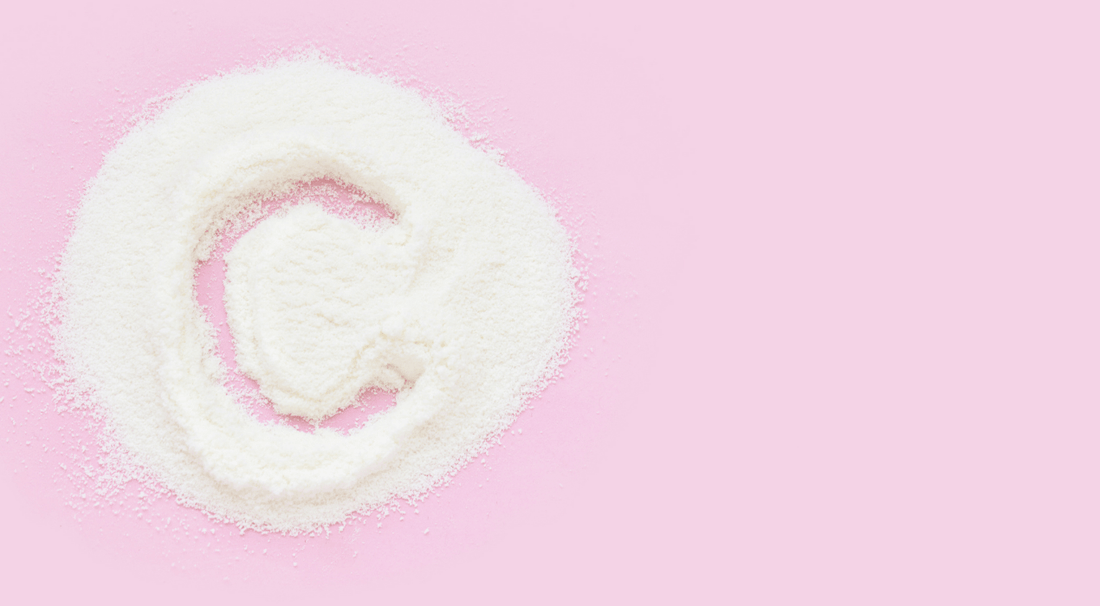
Glycine is a non-essential amino acid, meaning the body can make it – albeit slowly – from other amino acids. It is the primary amino acid found in collagen, and these high levels of glycine enable the body to build proteins, supporting multiple, vital health benefits.
It is one of the three amino acids that produce glutathione, a powerful antioxidant that fights molecules that cause cellular damage (known as free radicals), and helps to break down nutrients, activate enzymes, synthesise proteins, repair DNA, and support detoxification and immunity.
Glycine is also a key component of creatine, which provides energy and strength to muscles and can support bone health and cognitive function, plus it works as a neurotransmitter – a molecule that sends signals from the cells in our brain to other brain cells and to the muscles. Therefore, glycine in collagen can also be beneficial to mental health, appetite, digestion, pain reduction and sleep.
What is glycine?
Glycine is the second most abundant amino acid in the body, after glutamine. It is found in enzymes and proteins, and plays a role in nearly every aspect of bodily function. It is one of 20 amino acids that the human body uses to make the proteins that form our tissues, fascia, cartilage, ligaments, muscles, joints and organs. It is produced naturally by the body, but is also found in protein-rich foods.
How much glycine is in collagen?
Around 20% of the amino acids in collagen are glycine. The high level of glycine found in collagen also supports the natural production of collagen in the body.
Which is better: pure glycine or collagen?
Collagen is far more than glycine. There are another 17 amino acids in collagen that, collectively and individually, provide numerous health benefits beyond those that are obtained from just glycine.
In addition, many collagen peptides appear in the blood when consuming collagen supplements. You don't get any of those from isolated glycine.
When we consume collagen, our body will either use these collagen peptides, or break these down into the individual amino acids, to support many functions around our body. In addition, consuming collagen stimulates fibroblasts (cells responsible for producing collagen and connective tissues) and osteoblasts (cells responsible for bone formation).
Also, given that collagen is the most abundant protein in the body found in our hair, skin, nails, bones, teeth, joints, muscles, ligaments and organs, a collagen supplement can support all of these too, whereas, by comparison, glycine alone is limited in its functionality.
Can you take glycine and collagen together?
Taking both collagen and glycine at the same time has no adverse health effects. However, the abundant amount of glycine present in collagen suggests it's not necessary to ingest both supplements.
What are the benefits of glycine?
There are many benefits of glycine:
- Glycine is the prominent amino acid in collagen, boosting the strength of skin, bones, muscles, organs and joints
- Produces a vital antioxidant - glutathione
- One of the main components of creatine, which provides energy to the muscles and acts as a neurotransmitter
- Has been shown to improve the quality of sleep by reducing the body's core temperature
- Could reduce the risk of heart disease by preventing the build-up of a molecule associated with heart disease
- May improve insulin production
- Can support cognitive function and memory
- Helps build the intestinal lining and produce digestive enzymes
Available in UK & EU only
Available in US only
The information we have provided herewith, and all linked materials, are not intended nor should they be construed as medical advice. Moreover, the information herewith should not be used as a substitute for professional medical expertise or treatment. Please refer to our Terms and Conditions and consult your General Practitioner for advice specific for you.


